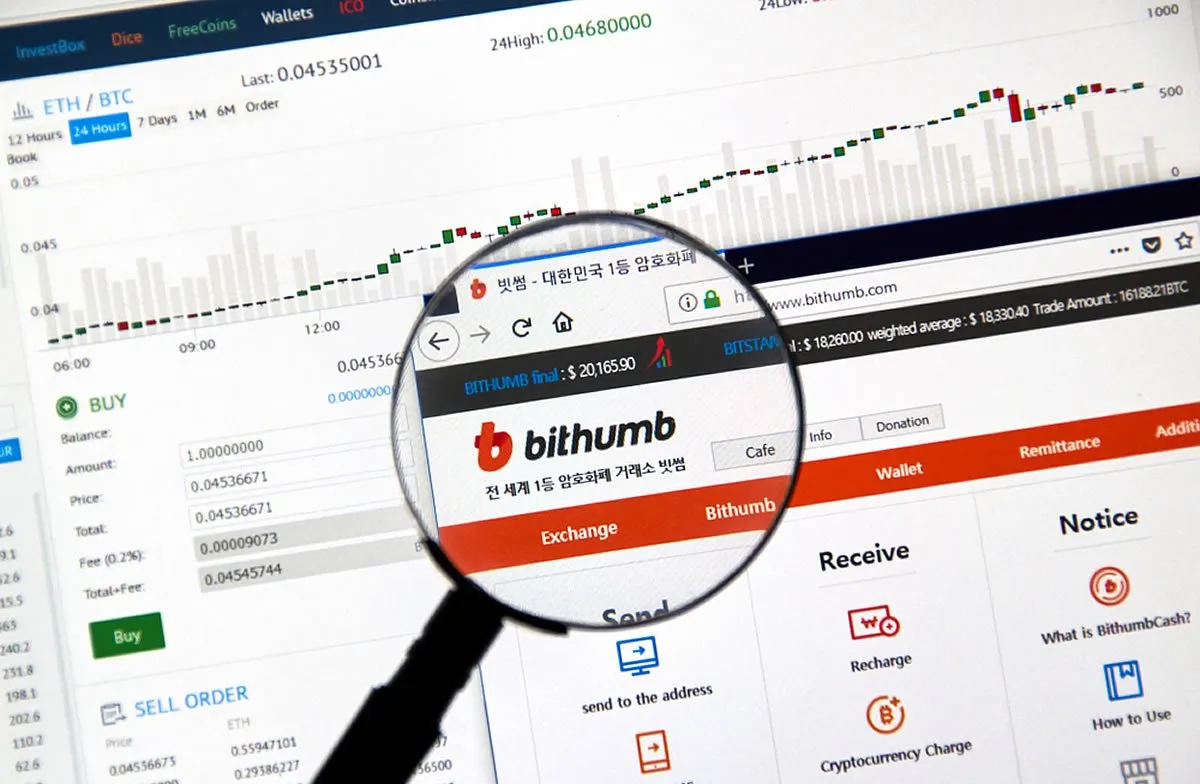Bithumb Splits into Crypto Exchange and Investment Business for South Korean IPO Plan

South Korea’s prominent crypto exchange, Bithumb, is undergoing a significant reorganization to pave the way for an initial public offering (IPO) on the country’s Kosdaq exchange. The Seoul-based company has announced plans to split its operations into two distinct entities, separating its core crypto exchange business from its investment and new business initiatives. This restructuring according to local media reports, detailed in a recent filing on South Korea’s corporate registry, is designed to streamline operations and enhance its appeal to investors. The move comes as Bithumb reports a strong financial recovery, posting an operating profit of 130.8 billion won ($95 million) in 2024, a stark contrast to the 149 billion-won loss recorded the previous year.
The restructuring, set to take effect on July 31, will see Bithumb Korea focus exclusively on operating the cryptocurrency exchange, which will be the entity pursuing the public listing. By isolating its exchange operations, Bithumb aims to present a clear and focused business model to potential investors. The decision to prioritize a Kosdaq listing marks a shift from earlier considerations of a NASDAQ debut, with a U.S. listing now viewed as a secondary goal. This strategic pivot underscores Bithumb’s intent to capitalize on domestic market familiarity while laying the groundwork for future international expansion.
Stay In The Loop and Never Miss Important Crypto News
Sign up and be the first to know when we publishCreation of Bithumb A and Investment Focus
A newly established entity, Bithumb A, will take charge of the company’s venture investments, asset management, and emerging business ventures. This unit will consolidate Bithumb’s investment arms, including Bithumb Partners, which has transitioned from focusing on NFTs and metaverse projects to investing in financial products like equities, bonds, and convertible bonds. Bithumb is reportedly in discussions with licensed entities in South Korea to facilitate these services, signaling a broader ambition to diversify its portfolio. Additionally, Bithumb Investment, responsible for managing equity stakes and strategic partnerships with external companies, will also operate under Bithumb A’s oversight.
The creation of Bithumb A allows the exchange to separate its high-risk, high-reward investment activities from the more stable revenue generated by its trading platform. This division is likely to appeal to investors who prefer clarity in business operations, as it isolates the exchange’s core function from the volatility often associated with venture investments. By restructuring in this manner, Bithumb is positioning itself as a more mature and diversified financial entity, capable of balancing innovation with operational stability. Local media reports suggest that this move is part of a broader strategy to enhance the company’s valuation ahead of the IPO.
Bithumb’s financial turnaround in 2024 further bolsters its IPO prospects. The reported profit reflects a recovering crypto market and Bithumb’s ability to adapt to changing conditions. The exchange has faced challenges in the past, including regulatory scrutiny and other financial misuse allegations, but its recent performance indicates resilience and strategic foresight. As South Korea continues to refine its regulatory framework for cryptocurrencies, Bithumb’s proactive restructuring could serve as a model for other exchanges seeking public listings.
The decision to list on Kosdaq, a market known for hosting technology and growth-oriented companies, aligns with Bithumb’s identity as a leader in South Korea’s crypto sector. A successful IPO could provide the capital needed to fuel further expansion, both domestically and internationally. For now, Bithumb’s focus remains on executing a seamless restructuring and building investor confidence in its dual-entity model. As the July 31 deadline approaches, the crypto industry will be watching closely to see how Bithumb’s strategy unfolds and whether it sets a precedent for other exchanges eyeing public markets.

